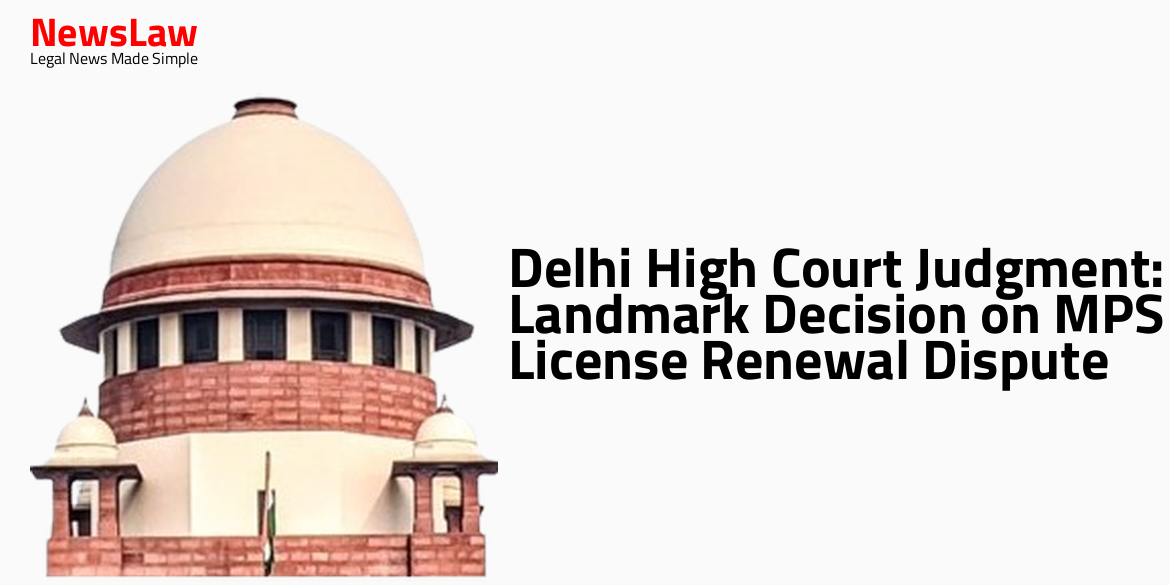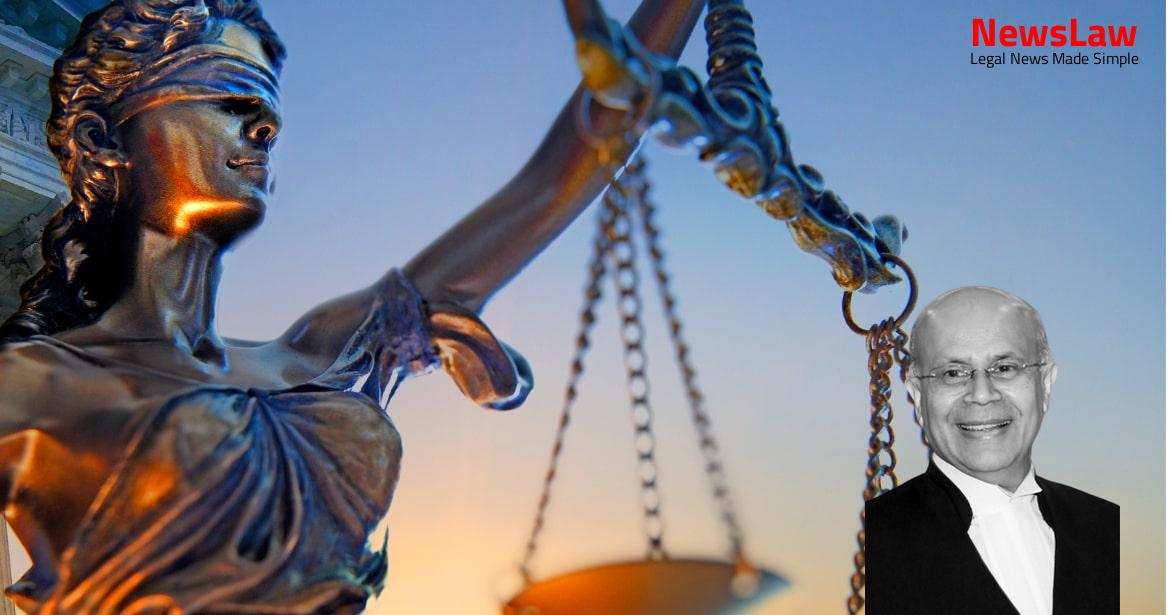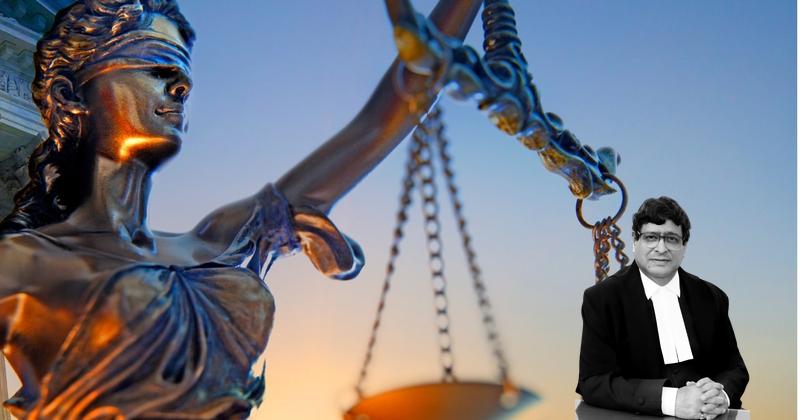In a groundbreaking ruling, the Delhi High Court has resolved a contentious legal battle concerning the renewal of MPS licenses. The case, involving a dispute between stakeholders in the railway sector, has been adjudicated, providing clarity on the rights and obligations of the license holders. This judgment, which impacts the livelihood of many, establishes important legal principles and guidelines for similar cases in the future. #DelhiHighCourt #MPSLicense #Judgment
Facts
- Petitioner no.1 operates three MPS at Bareilly Railway Station, Petitioner no.2 operates one MPS at Moradabad Railway Station, and Petitioner no.3 operates one MPS at Haridwar Railway Station.
- The petitioners were initially running miscellaneous stalls/trolleys under Commercial Circular No. 96 of 2007. However, in 2017, they were compelled by Northern Railway to convert their stalls/trolleys into MPS as per Commercial Circular No. 61 of 2017 (‘2017 Policy’).
- The petitioners and Northern Railway entered into Master License Agreements to formalize the license arrangement. Petitioner no.1’s agreement is dated 31.03.2021, Petitioner no.2’s agreement is dated 29.10.2021, and Petitioner no.3’s agreement is dated 17.08.2020.
- Under Clause 3 of the Master License Agreements, the license tenure for the petitioners was set for five years from the date of conversion of the stall/trolley until 21.12.2022. The clause explicitly stated that there would be no extension or renewal of the agreement.
- Due to a force majeure event, the Covid-19 lockdown, the tenure was extended by 68 days until 27.02.2023 as per letters dated 14.12.2022 issued by Northern Railway. The petitioners were instructed to vacate their MPS by this date.
- The Master License Agreements and the letters of extension dated 14.12.2022 have been challenged in the petition W.P.(C) 2501/2023.
Arguments
- Petitioners’ licenses have expired by efflux of time, and they have no right to compel the respondents to extend the license.
- The 2017 Policy is legally sound and non-arbitrary, applied universally to stall/trolley owners without discrimination.
- The Karnataka High Court dismissed a similar challenge against the 2017 Policy in a previous case.
- The 2017 Policy clearly states no renewal or extension of license, distinguishing it from previous cases.
- Petitioners benefitted from the 2017 Policy for a 5-year tenure and cannot now contest it upon license expiry.
- Petitioners argue that Clause 5 of the 2017 Policy violates Constitutional rights.
- Petitioners contended that being forced to sign a new policy with no renewal was unacceptable.
- Petitioners have a legitimate expectation for license renewal throughout their lifetime and for future generations.
- Petitioners cite precedents to support their arguments for license renewal.
- Petitioners challenged the arbitrariness of a 68-day extension of contracts due to Covid-19.
- Railway authorities reduced license fees post-lockdown, petitioners seek proportionate extension of license period.
- Petitioners converted their stalls to MPS units under coercion and economic duress, alleging unequal bargaining power.
- Jurisdiction of the court in deciding the petitions is challenged based on exclusive jurisdiction clauses in license agreements.
- The 2017 Policy aims to prevent monopolization and provide equal opportunities for licensing.
- The petitioner signed a non-renewable contract for five years with full knowledge of its terms.
- The petitioner cannot now seek to revert to a policy no longer in effect or applicable to them.
- The judgment cited by the petitioner pertained to a different policy, not applicable to their case.
- Having enjoyed the benefits of the contract, the petitioner cannot backtrack and demand a different policy to be applied.
Analysis
- The petitioners’ contention regarding the renewal or extension of their licenses after the expiration of the 2017 Policy/Master License Agreement is devoid of merit.
- The Supreme Court’s decision in Yazdani International (P) Ltd. v. Auroglobal Comtrade (P) Ltd. clarifies the revocable nature of licenses at the will of the grantor.
- The policy decisions made by the railways regarding the re-tendering of all MPS units after the tenure expires do not violate the petitioners’ right to livelihood.
- The directive principles of Article 38 emphasizing social welfare are upheld in the 2017 Policy, ensuring opportunities for marginalized minorities and weaker sections of society are safeguarded.
- The petitioners’ claim for perpetual renewal of licenses is against Clause 5 and 11 of the 2017 Policy, which clearly states the non-renewable nature of MPS units.
- The implementation of Force Majeure on account of Covid-19 led to an extension of the license period for the petitioners based on the government-imposed lockdown.
- The petitioners voluntarily converted their stalls/trolleys to MPS, and the extension period was determined based on ground realities at respective railway stations.
- The doctrine of legitimate expectation cannot be claimed as a right itself, and legitimate expectation can only be used when the denial leads to the violation of Article 14 of the Constitution.
- The specific part of the judgment discusses the arguments put forward by the STA.
- The STA’s arguments were analyzed and considered by the court.
- This part likely delves into the details of the STA’s contentions and the court’s interpretation of them.
- Merely because relaxation was granted previously due to changes in examination pattern/syllabus, petitioners cannot claim assistance in seeking mandamus for a new relaxation policy.
- A writ of Mandamus cannot be used to direct the enactment of laws or framing of rules.
- Mandamus is applicable for enforcing fundamental rights or duties related to them and cannot be issued without a breach or threat to such rights.
- Courts have the jurisdiction to declare laws unconstitutional but cannot delve into intricate factual situations of administrative decisions.
- Judicial review of a policy decision differs from mandamus to frame policy a certain way.
- Legitimate expectations do not always entitle relief and can be negated by public interest, policy changes, or other valid reasons from decision-makers.
- No public body can arbitrarily decline to renew a license without rational purpose or compelling reasons.
- Individual license agreement and 2017 Policy contain an arbitration clause.
- Petitioners can invoke the arbitration clause if aggrieved by insufficiency of extension due to Covid-19.
- Arbitration clause can also be invoked to claim damages.
- Petitioners are at liberty to initiate appropriate proceedings through arbitration.
Decision
- Existing Bookstalls, Misc. Stalls, and Chemist Stalls given option to convert to Multipurpose Stalls (MPS) by paying the quoted License Fee
- New MPS to be allotted standardized space by Zonal Railways after expiry of current agreements
- Existing stalls/trolleys allowed for conversion into MPS as per policy
- All existing stalls/trolleys to be converted into MPS after a one-time division-wise exercise
- Petitioners given two options: convert to MPS with 5-year tenure or continue existing stalls/trolleys until expiry of current agreement
- Petitioners opted for conversion to MPS under the 2017 Policy
- Petitioners granted 3 months to vacate stalls after obtaining extended license period
- Renewal of license sought by petitioners for miscellaneous stalls/trolleys
- Court dismisses petitions after finding no merit, keeping rights and remedies open
- All pending applications also disposed of
- Common issues arising for consideration in petitions related to Northern Railway adjudicated by the Court
Case Title: SUDHAKAR TRIPATHI Vs. UNION OF INDIA & ORS. (2024:DHC:4452)
Case Number: W.P.(C)-12542/2023



